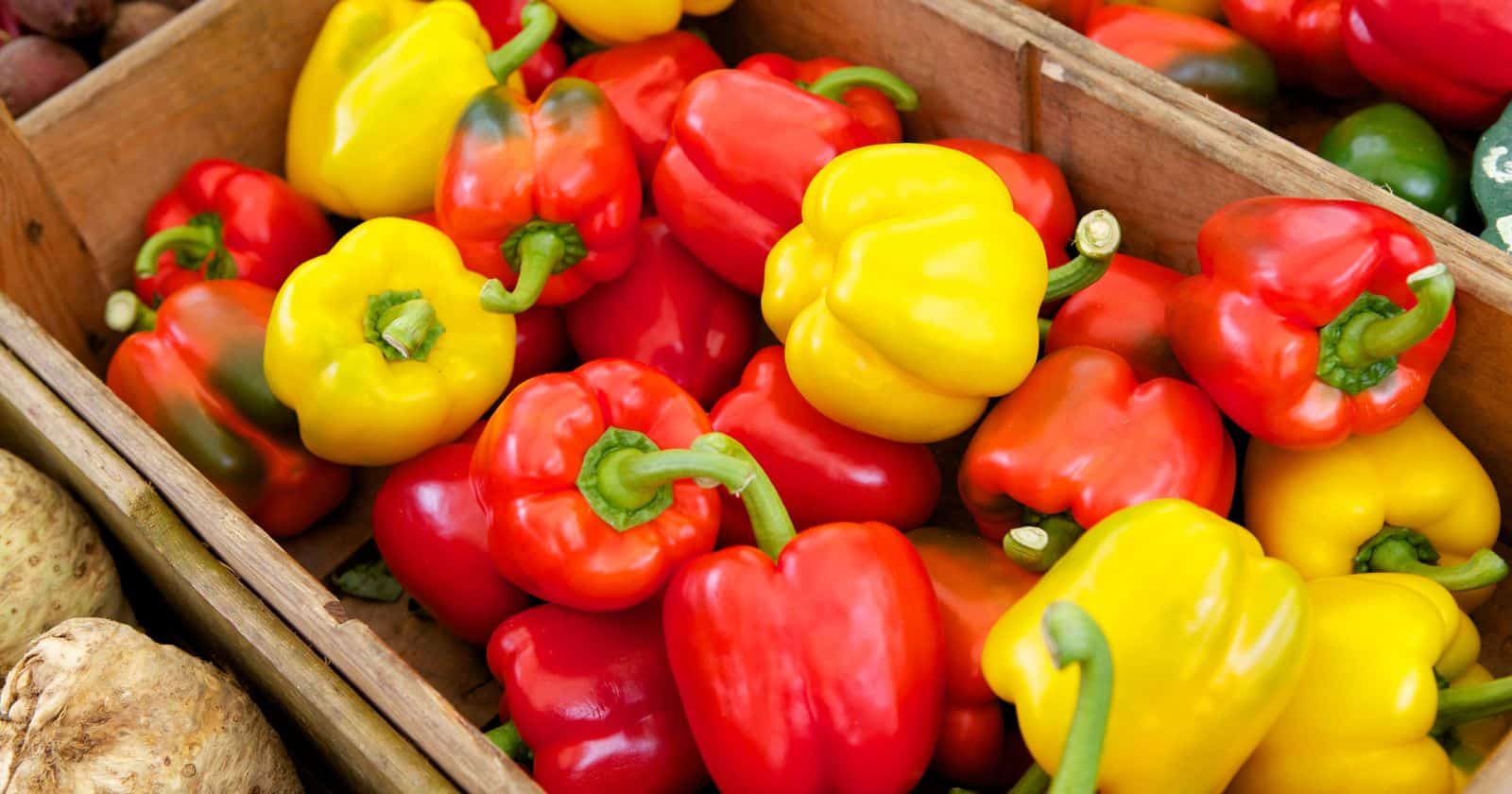Have you ever bitten into a sweet, crunchy bell pepper expecting a nice mild flavor, only to surprisingly get hit with an intense spicy or bitter taste? As a bell pepper lover, you know they aren’t supposed to be spicy at all. So what’s going on when your tastebuds tell you otherwise?
This confusing flavor phenomenon is more common than you might think. If you’ve pondered “Why are bell peppers spicy to me when they’re not supposed to be?”, you’re not alone. Let’s get to the bottom of this capsaicin-free conundrum.
First, rest assured bell peppers contain no true capsaicin heat. Their scoville rating is zero – no
Rather, your own individual taste perception is likely skewing the flavor profile. A few possibilities explain why bell peppers incorrectly register as spicy to some people:
- You may be a “supertaster” with extra taste bud receptors that amplify flavors.
- Oral allergies could make bell peppers taste unpleasantly hot and bitter.
- You may simply have an exceptionally low tolerance for any burning sensation.
- Traces of spicy foods on cooking utensils or in a dish could be transferring heat.
The good news is you’re not crazy – your unique biology and taste quirks are just playing tricks! With the right techniques, you can still enjoy the true essence of bell peppers.
Curious to get to the bottom of your bell pepper
Let’s get to the bottom of this capsaicin-free mystery so you can finally taste the true sweetness!
Bell Peppers Have No Capcaisin Heat

First, a quick science refresher. The chemical compound capsaicin is what gives chili peppers their spicy kick. It stimulates our taste nerve receptors, producing that burning sensation.
Bell peppers, on the other hand, contain no capsaicin at all. Their scoville rating – the scale measuring pepper heat – is zero. You can be certain that bell peppers themselves have no
So if you are detecting a spicy flavor, it must come from within your own perception, not the pepper. Let’s look at why your tastebuds might be deceiving you.
You May be a “Supertaster”
One possible reason bell peppers taste hot to you is that you could be a “supertaster.” Supertasters have more concentrated taste bud receptors on their tongues.
This genetic predisposition makes supertasters ultra-sensitive to certain flavor compounds. They strongly perceive bitter flavors and oral sensations like the “burn” of chilis.
For supertasters, the mild sweetness of bell peppers may overload their sensitive taste buds enough to register as spicy heat. Their heightened reactivity amplifies flavors.
You May Have Oral Allergies
In some cases, oral allergy syndrome could also be causing bell peppers to taste unpleasantly hot.
With oral allergy syndrome, the proteins in certain raw fruits and vegetables trigger an itchy or burning sensation in the mouth. Bell peppers are one food known to cause these reactions in susceptible people.
So that spicy taste could actually be a mild allergic response as your body reacts to the proteins. Cooking the peppers deactivates the proteins and stops the reaction.
You May Have Low Spice Tolerance
Another possibility is simply that you have a very low tolerance for anything even mildly spicy.
We all have varying sensitivity levels to chili heat. If you lack exposure to spicy foods, your taste buds may be highly sensitive to any sensations resembling a “bite.”
Even sweet bell peppers may contain enough flavor compounds to overwhelm your easily provoked heat receptors. To your delicate palate, their flavor profile seems hot.
Cross-Contamination with Other Foods
In some cases, bell peppers may pick up traces of capsaicin when prepared alongside spicy foods.
If you chop peppers on the same cutting board as hot chilies, for example, they can get cross-contaminated. You may be tasting residue, not the bell pepper itself.
Likewise, eating bell peppers in a dish with spicy components can transfer heat, especially if raw. Their flavor gets lost among true spices.
Can a Bell Pepper Allergy Cause a Spicy Taste?
One possible explanation for perceiving bell peppers as hot and spicy is an oral allergy to bell peppers. Some people’s immune systems react to the proteins in raw bell peppers, causing uncomfortable symptoms.
With oral allergy syndrome, contact with the uncooked peppers triggers itching, tingling, or burning sensations in the mouth. Cooked peppers may be tolerated because high heat alters the proteins.
This immediate allergic reaction is usually mild, but symptoms can include:
- Tingling, stinging, or itchy lips, tongue, throat
- Swelling of the lips, mouth, throat
- Spicy, peppery taste
- Bitter, unpleasant flavor
- Difficulty swallowing
- Upset stomach
While not dangerous for most, severe mouth or throat swelling requires emergency care.
To manage a bell pepper oral allergy:
- Avoid raw bell peppers; cook them to reduce reactions
- Take an antihistamine before eating to block allergic response
- Try a blended soup or sauce to hide the texture
- Allow peppers to fully ripen – green peppers are more allergenic
With caution, you can still enjoy peppers. Work with your doctor to control symptoms and any cross-reactions with other produce.
Do Cooking Methods Affect the Spiciness of Bell Peppers?

Since bell peppers contain no capsaicin, the compound responsible for spicy heat, cooking methods do not actually alter their spiciness. Bell peppers will remain non-spicy no matter how they are prepared.
However, cooking does significantly impact the flavor and texture of bell peppers, mellowing their raw sharpness. Different cooking techniques can bring out nuanced sweet, smoky, or charred notes.
Here are some common ways to cook bell peppers:
- Raw – Raw bell peppers are crunchy and fresh tasting. Enjoy them in salads, dips, and as crudité.
- Roasted – Roasting concentrates the natural sugars, resulting in caramelized sweetness and smokiness.
- Grilled – Grilling adds delicious char while retaining a crisp texture.
- Stir-Fried – Quick stir-frying keeps bell peppers tender-crisp and boosts their subtle fruitiness.
- Pan-Roasted – Dry pan-roasting softens the texture and intensifies the flavor.
- Pickled – Pickling infuses bell peppers with tangy, spicy brine.
While the spiciness stays at zero on the Scoville scale no matter the preparation method, cooking makes bell peppers even sweeter and more approachable. Heat gently coaxes out their best qualities.
Can You Reduce the Spicy Taste?
If you want to tame the perceived spiciness of bell peppers, here are some methods to try:
- Soak raw bell pepper slices in milk for 30 minutes – dairy proteins bind to capsaicin. Rinse off the milk before eating.
- Increase sugar: Adding a bit of honey balances heat perception.
- Pair with cooling foods like cucumber, melon, or mint. Their juices coat and soothe.
- Cook the peppers – heating helps break down the flavor compounds.
- Drink milk with your meal – it relieves spicy burning.
- Choose yellow or orange bell peppers; they tend to be sweeter than green.
With these tips, you can moderate that unwanted
When to See a Doctor
In rare cases, extreme burning reactions to bell peppers could signal something more serious and require medical evaluation, such as:
- Oral allergy syndrome that causes throat swelling or anaphylaxis
- Nerve damage in the mouth interfering with taste signals
- Gastroesophageal reflux (stomach acid burning the throat)
Discuss persistent pepper problems with your doctor to rule out risks like these. Most often, however, odd spicy perceptions come down to individual taste quirks.
Conclusion
So rest assured that you aren’t going crazy – bell peppers themselves contain no heat!
With some experimentation, you can determine tricks to tame unwanted spiciness. Soon, you’ll be able to finally enjoy bell peppers as the mild, sweet treat they are intended to be.





